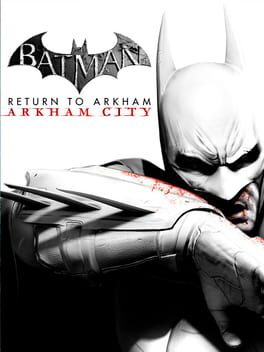Although I didn't quite had the same appreciation for Arkham Asylum as others, I did find it to be an enjoyable experience despite its dated mechanics. Regrettably, the sequel, Arkham City, seems to inherit many of the same issues that plagued its predecessor.
Arkham City, disappointingly, fails to significantly enhance or address the flaws present in its forerunner, essentially carrying over the same set of problems. Surprisingly, I found myself favoring Arkham Asylum, as Batman's somewhat stiff movements seemed better suited to the game's claustrophobic setting and atmosphere.
Similar to its predecessor, the game did grow on me with extended playtime. The slight changes to the combat mechanics made it easier to pull off combos. Additionally, I didn't find Batman's voice acting to be all that lifeless this time around, marking a positive change.
However, despite a strong and solid foundation, the narrative encountered a hiccup. Despite being set up as the primary antagonist, Hugo Strange failed to leave a lasting impact, with him feeling like he never really did anything in the game, even with his knowledge of Batman's identity. This shortfall became more apparent when contrasted with the more prominent role played by the Joker.
Furthermore, the port of Arkham City suffered from noticeable performance issues, with significant frame rate drops occurring even during grappling. This technical setback detracted from the overall experience, making certain aspects less enjoyable.
While Arkham City brought some improvements to the combat mechanics and addressed some of my voice acting concerns, it struggled to escape the shadow of its predecessor's issues. The narrative's execution, coupled with technical performance problems, diminished the overall enjoyment and potential impact of the game.
Arkham City, disappointingly, fails to significantly enhance or address the flaws present in its forerunner, essentially carrying over the same set of problems. Surprisingly, I found myself favoring Arkham Asylum, as Batman's somewhat stiff movements seemed better suited to the game's claustrophobic setting and atmosphere.
Similar to its predecessor, the game did grow on me with extended playtime. The slight changes to the combat mechanics made it easier to pull off combos. Additionally, I didn't find Batman's voice acting to be all that lifeless this time around, marking a positive change.
However, despite a strong and solid foundation, the narrative encountered a hiccup. Despite being set up as the primary antagonist, Hugo Strange failed to leave a lasting impact, with him feeling like he never really did anything in the game, even with his knowledge of Batman's identity. This shortfall became more apparent when contrasted with the more prominent role played by the Joker.
Furthermore, the port of Arkham City suffered from noticeable performance issues, with significant frame rate drops occurring even during grappling. This technical setback detracted from the overall experience, making certain aspects less enjoyable.
While Arkham City brought some improvements to the combat mechanics and addressed some of my voice acting concerns, it struggled to escape the shadow of its predecessor's issues. The narrative's execution, coupled with technical performance problems, diminished the overall enjoyment and potential impact of the game.
